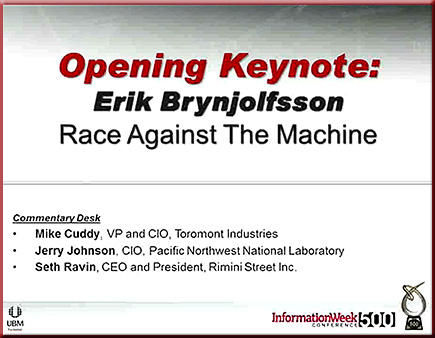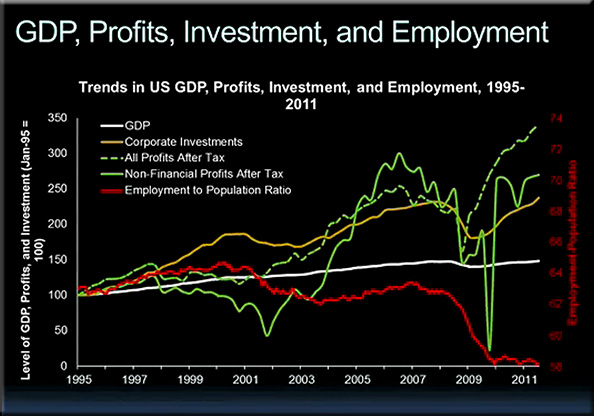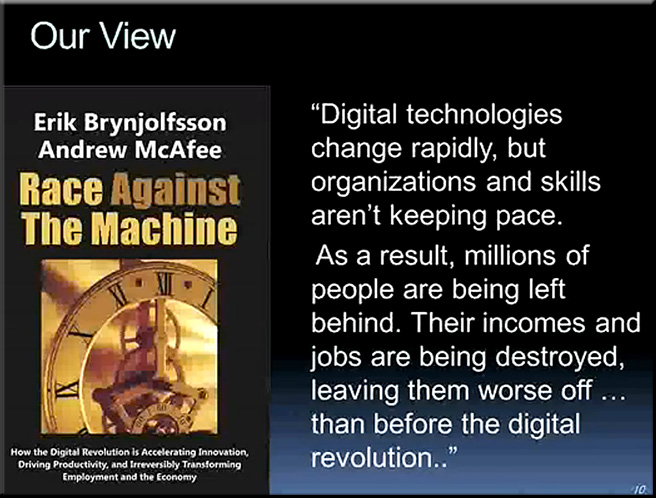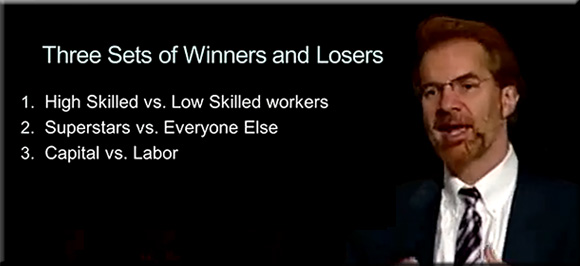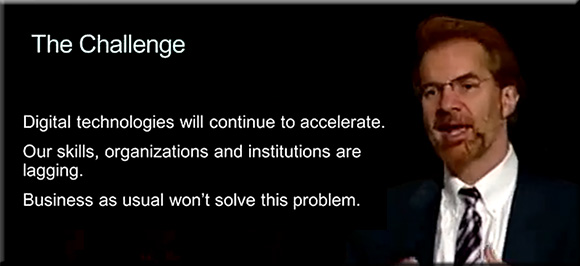.
.
.
Digital Revolution’s Winners And Losers — from Information Week by John Foley
Workers with in-demand digital skills benefit most as computers increasingly take over
everyday tasks. In this InformationWeek 500 video, MIT’s Erik Brynjolfsson discusses
how this trend could affect your enterprise.
I agree with Erik that a large swath of people are being left behind, mainly because of technological changes and the pace of those changes. Again I ask, can you hear the engines roar? How can we re-train folks to take advantage of the 3+million open jobs out there? How can we reinvent ourselves as quickly as possible?
- Andrew McAfee: Are droids taking our jobs?
Robots and algorithms are getting good at jobs like building cars, writing articles, translating — jobs that once required a human. So what will we humans do for work? Andrew McAfee walks through recent labor data to say: We ain’t seen nothing yet. But then he steps back to look at big history, and comes up with a surprising and even thrilling view of what comes next. - America’s jobs gap: 9 million — from cnn.com by Tami Luhby









